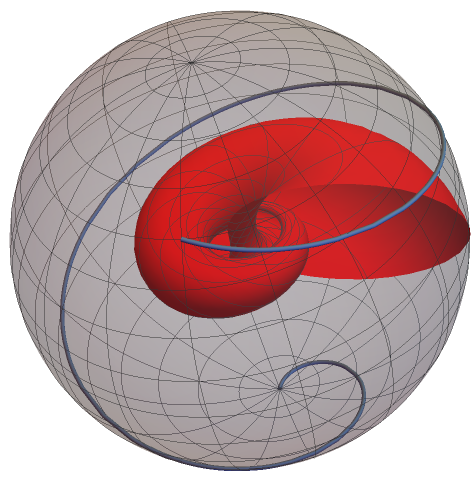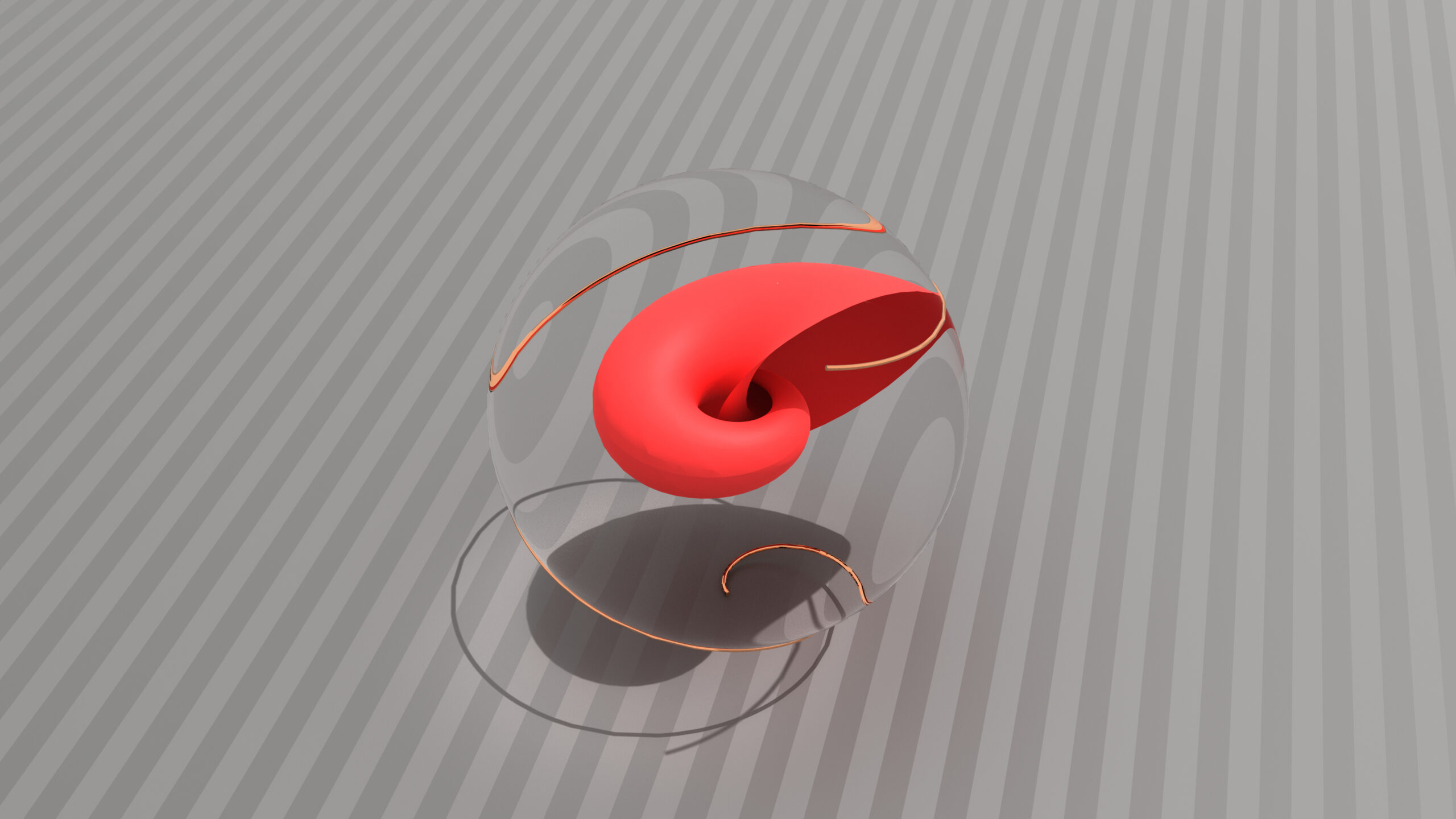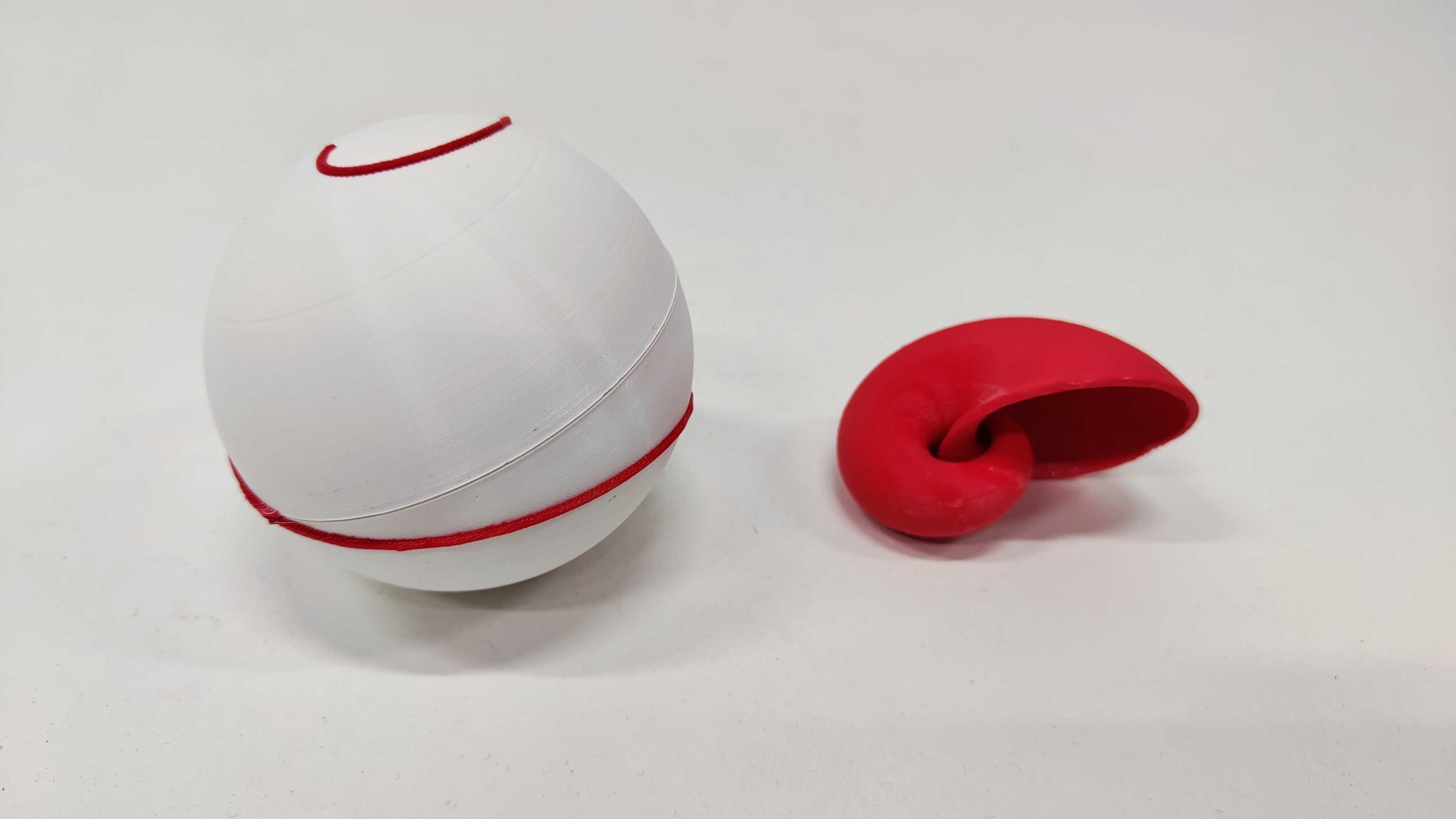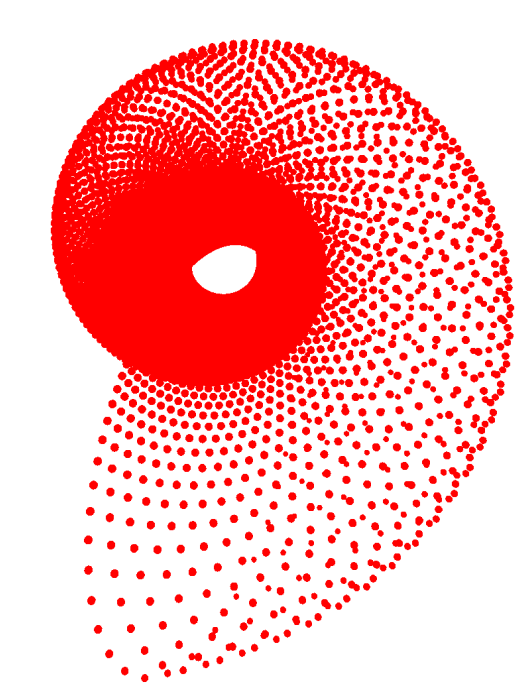Written by Jonas Höcht, Burak Ertan und Carola Behr
The famous physicist Sir Roger Penrose called the Hopf fibration “an element of the architecture of our world” – reason enough to try and visualize this remarkable map.
Through the formalism of quaternions, \(S^3\) (the sphere in four dimensions) can be identified with the set of rotations of \(S^2\) (the spere in three dimensions). The Hopf fibration now maps a point \(r\) from the \(S^3\) to the point \(P\) on the \(S^2\), to which the point \((1,0,0)\) gets rotatated by the rotation defined by \(r\).
It turns out that in this construction, the preimage of a point \(P\) on \(S^2\), called the fiber of \(P\) under the Hopf map, is a circle on \(S^3\). Being humans, we unfortunately cannot see the structure emerging from this in 4 dimensions. But instead, we can use stereographic projection to construct a visible image of the Hopf fibers. As different circular fibres on \(S^3\) are interlinked and stay interlinked circles in \(\mathbb R^3\) under projection, beautiful structures emerge by looking at the Hopf fibrations of curves on the sphere.
The figures show different visualisations of the Hopf fibration of a spiral on the sphere.




